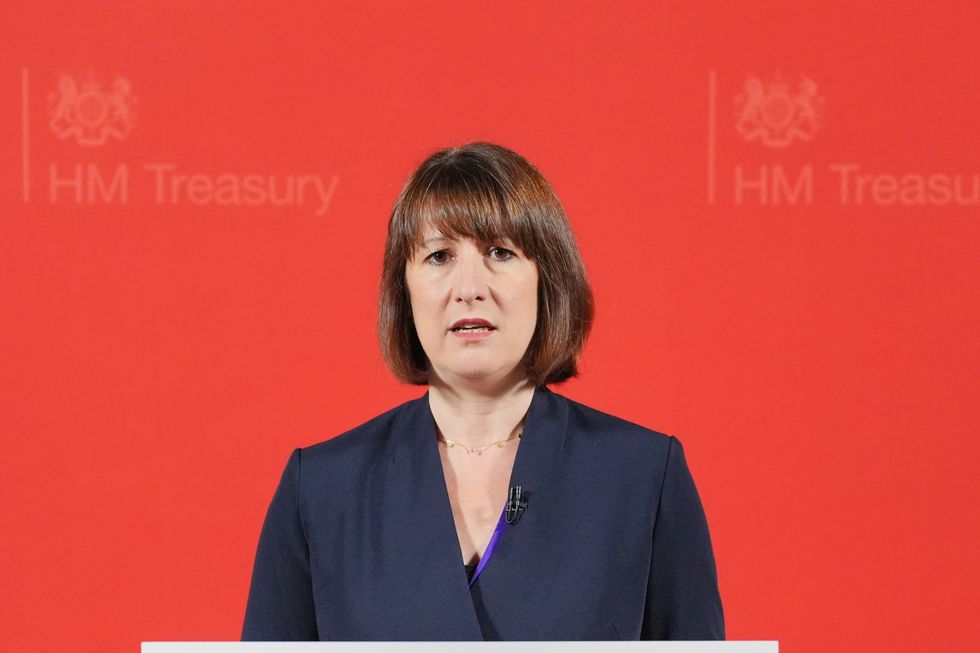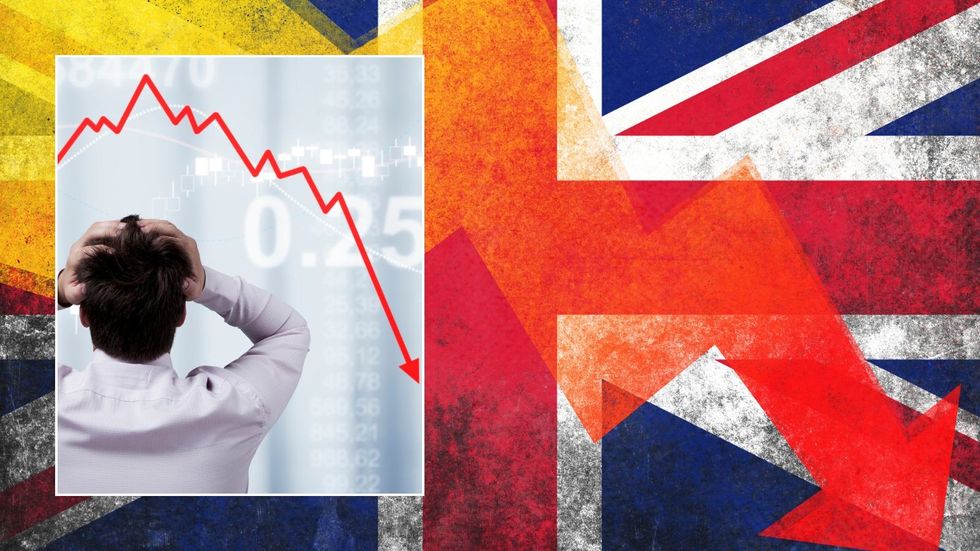The ONS' latest figures paint a worrying picture for Labour's fiscal plans
PA
Borrowing costs, not including public sector banks came to £13.7billion in August 2024 which is £3.3billion more than in August 2023
Don't Miss
Most Read
Trending on GB News
Labour has been dealt another blow to its fiscal agenda for the economy as public sector borrowing is the highest since the Covid-19 pandemic, according to the latest figures from the Office for National Statistics (ONS).
Borrowing in August 2024 was found to be the third highest on record, only behind 2020 and 2021, despite tax revenues being up over the period.
Costs, not including public sector banks came to £13.7billion in August 2024 which is £3.3billion more than in August 2023.
Concerningly, public sector debt was £2.77billion at the end of the month which is estimated to be around 100 per cent of country's gross domestic product (GDP).
Grant Fitzner, the ONS's chief economist, said: "Borrowing was up over £3billion last month on 2023's figure and was the third highest August borrowing on record.
"Central Government tax receipts grew strongly, but this was outweighed by higher expenditure, largely driven by benefits uprating and higher spending on public services due to increased running costs and pay."
Do you have a money story you’d like to share? Get in touch by emailing money@gbnews.uk.

Rachel Reeves will have to contend with public sector debt matching the UK's GDP while at the Treasury
PAChief Secretary to the Treasury Darren Jones said: "When we came into office, we inherited an economy that wasn’t working for working people.
"Today’s data shows the highest August borrowing on record, outside the pandemic. Debt is 100% of GDP, the highest level since the 1960s.
"Because of the £22billion black hole in our public finances we have inherited this year alone, we are now taking the tough decisions now to fix the foundations of our economy, so we can rebuild Britain and make every part of the country better off."
Gabriel McKeown, the head of Macroeconomics at Sad Rabbit Investments, warned that these latest figures "paint a stark picture" of the fiscal dilemma Labour faces.
He explained: "These elevated borrowing levels underscore the government's struggle to balance spending with income amidst rising costs and economic uncertainties.
"This will likely necessitate difficult decisions in the forthcoming Budget, with the need to rein in borrowing without stifling the economic recovery being paramount.
"Inheriting a substantial fiscal deficit, Chancellor Reeves now faces the formidable challenge of addressing this financial shortfall without exacerbating the situation further.
"However, in a storm of rising costs and economic uncertainty, stabilising public finances is not just important, it’s vital for reigniting rapidly depleting confidence."
Chancellor Rachel Reeves is preparing to outline the Government's plan for the economy during the Autumn Budget on October 30.
Ahead of this date, she has warned that households should expect "tough decisions" to be made to plug the £22billion "black hole" in the public finances.
LATEST DEVELOPMENTS:

Economists and finance analysts are concerned over the latest ONS figures
GETTYHowever, this claim of a "black hole" has been called into question by some analysts.
David Belle, the founder and trader at Fink Money, added: "The first thing to ask is, 'what black hole'? Not only could the 'black hole' be fixed by interest rate normalisation (lower rates lead to lower debt servicing costs), but you'd have to ask what the furore over it was according to these figures.
"Our deficit spending is 4.4 per cent of GDP, lower than the US, France, Japan, Italy et al. These are high. But the issue with UK spending is that it seems to be growth negative.
"The UK lacks a pro-growth policy, not spending. In this regard, yes the deficit and debt spending is something to be concerned about because it is not changing the denominator positively in the deficit/GDP equation."








